What to do in Szczecin/Stettin, Poland?
Whether you call it 'Szczecin' or 'Stettin', this major city in the Polish region of West Pomerania has witnessed many changes in power over the centuries, thanks to its ideal location as an inlet to the Baltic Sea, and a complex tug o war history between Germany and Poland. Consequently, Szczecin's unique past is reflected in all things above and below ground in the city centre, and despite the fact that the iron-curtain has been open for more than 30 years, it is still waiting to be discovered! If you've been looking at the train map between Berlin and hotspots in Poland like Warsaw and Kraków, you may have seen this awkwardly-spelt city on the way and have that burning question about what to do in Szczecin and indeed is it even worth stopping by? The answer is: YES! There are plenty of things to do in Szczecin and we're here to tell you about it!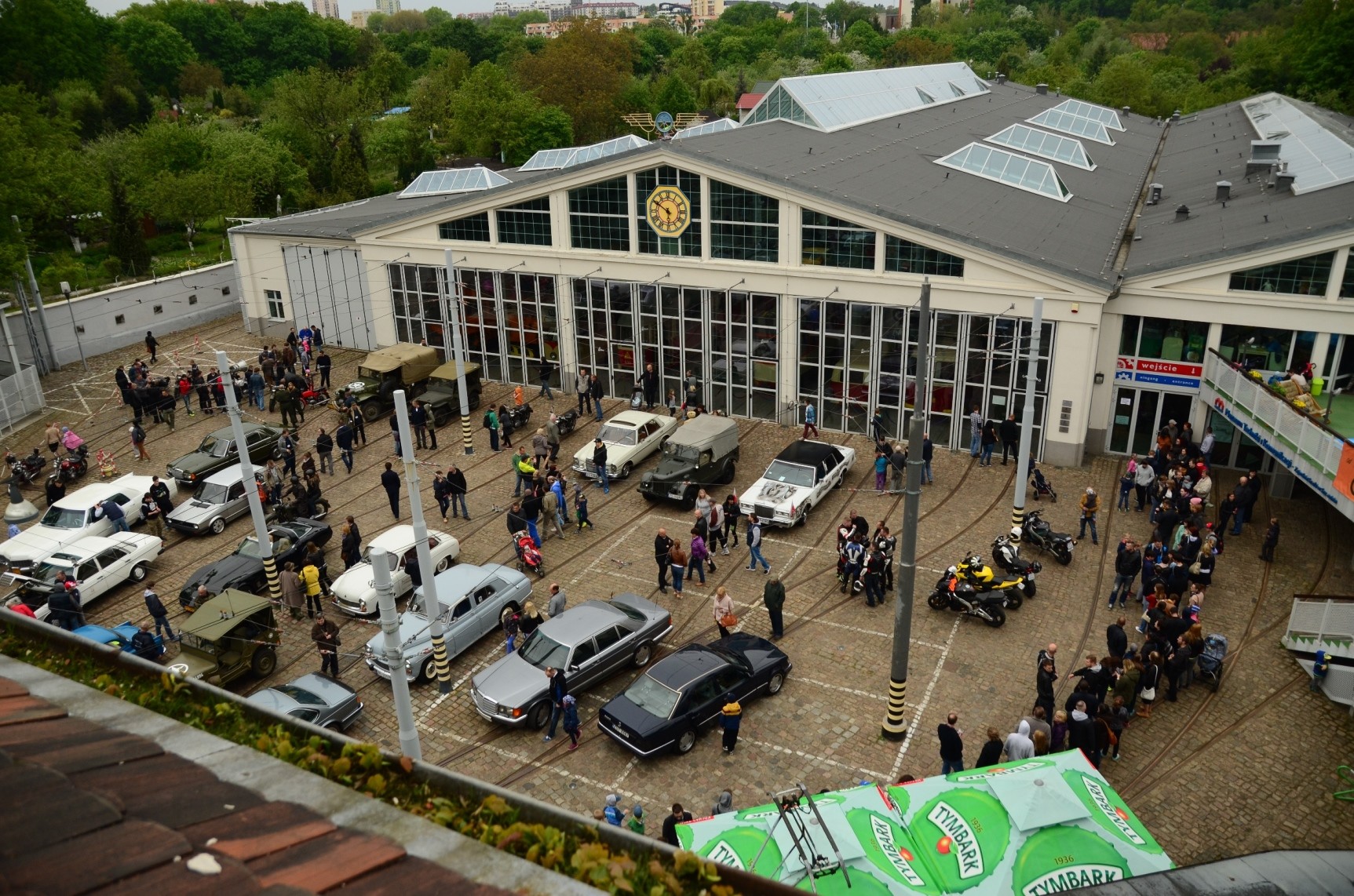
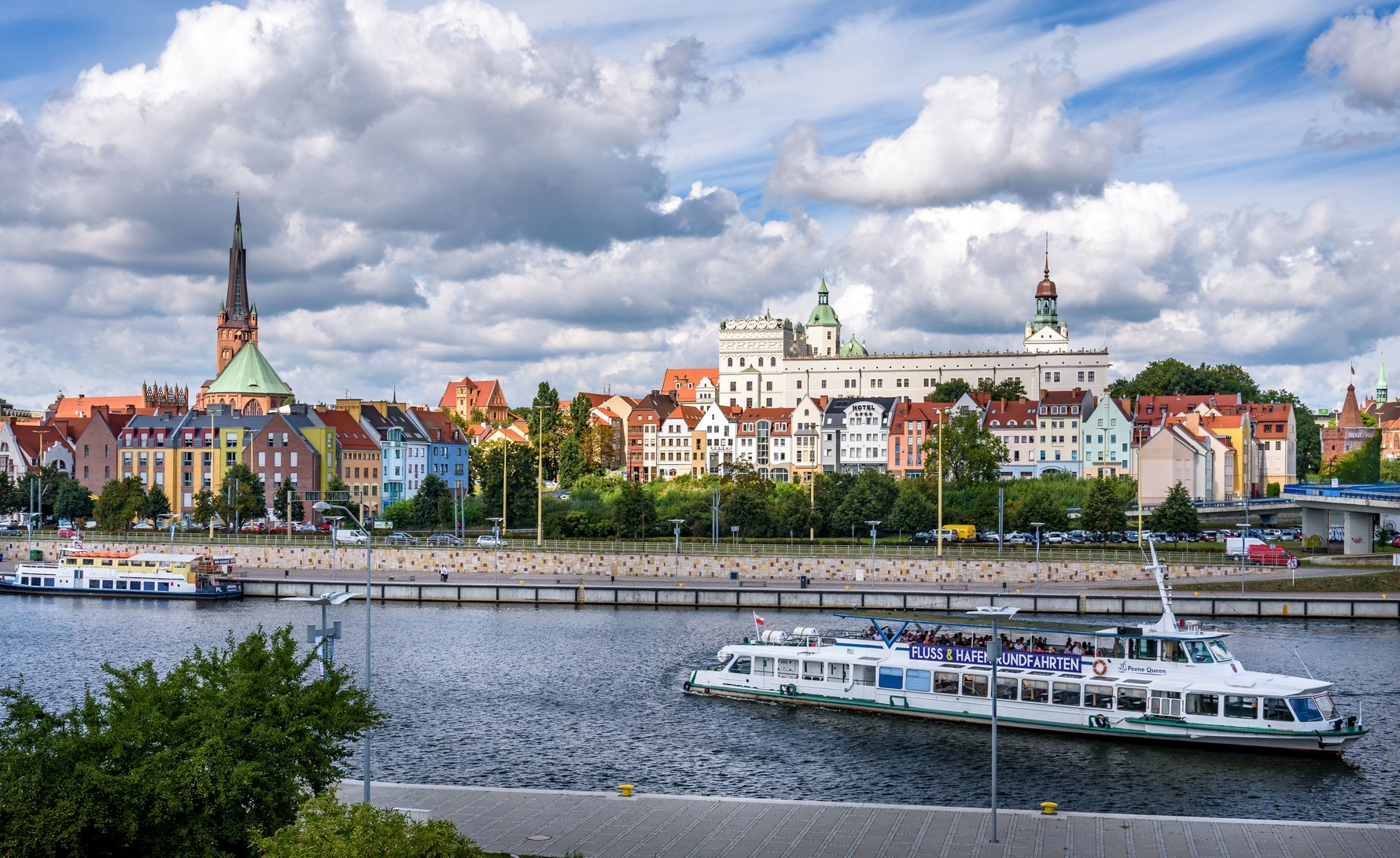
Before we get into our pick of favourite places for sightseeing in Szczecin, there's a few logistical things we'd like to bring up! Firstly, the district 'Stare Miasto' (ENG: Old Town) may be called as such on Google Maps, however, in reality, you should not expect a neighbourhood of rustic ye old buildings like it is in Warsaw, Gdańsk or Kraków. For the most part, the landmarks we list below are many city-blocks apart from each other. This brings us to our second point: Szczecin is a biiiiig city! Not like New York or San Paulo big, however, it's quite spread out compared to other European metropoli. It's no surprise that there is a 12-route tram system that services all corners of the centre. Our recommendation, especially if you really want to get the most out of your Szczecin visit, is to buy a Tourist Card, which allows free travel on public transport and 50% off all museum entries (amongst other perks). The other popular options that are encouraged by the local tourism authorities are the Szczecin's scan-and-go bike systems, the use of which are facilitated by the many bike paths around. For more on that, read our article Top 10 Outdoor Activities in Szczecin.
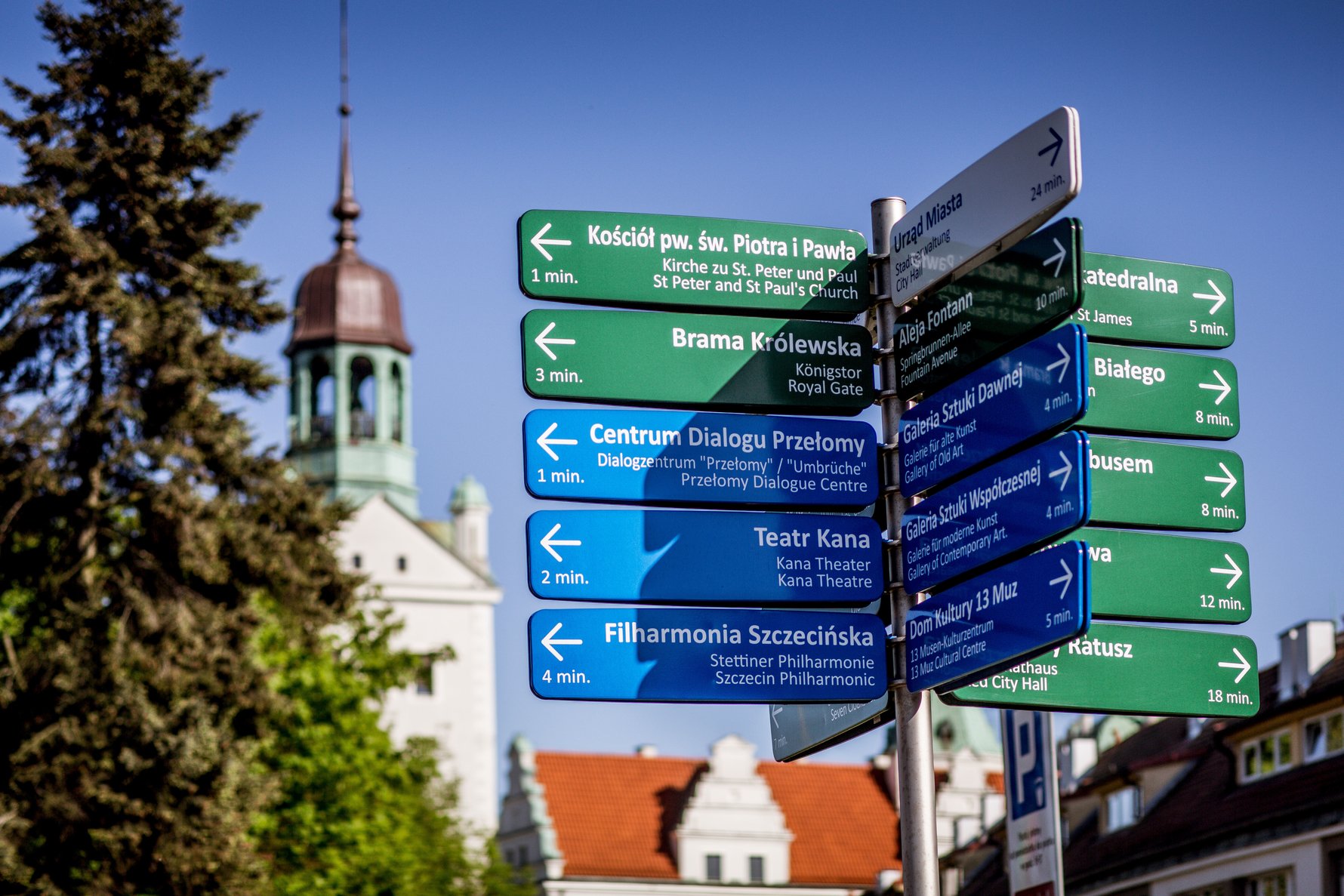
Sienny Market Square + The Old Town Hall (Szczecin's History Museum)
The pretty little heart of Szczecin's old town, Sienny Market Square (PL: Rynek Sienny) a simple affair - a gently-sloping cobblestone street lined with colourful 18th-century clockwork houses, which now house several gastro options. While you may be in the Old Town marketplace for a coffee, bite to eat or satisfying your insta needs, those who are looking to learn more about the city's history need look no further than the southern corner of the square. That white-washed clockwork facade ontop of gothic brick arches is the Old Town Hall building. If you think this is impressive, you must make sure you switch sides and check out the fully-blown neo-gothic tower fencing on the street-side. Proceed inside and you'll find the Szczecin's History Museum, sporting a collection of archaeological relics dating from the 8th century onwards, as well as an overview of the city through the ages under Prussian, Swedish, German, and ultimately-Polish rule.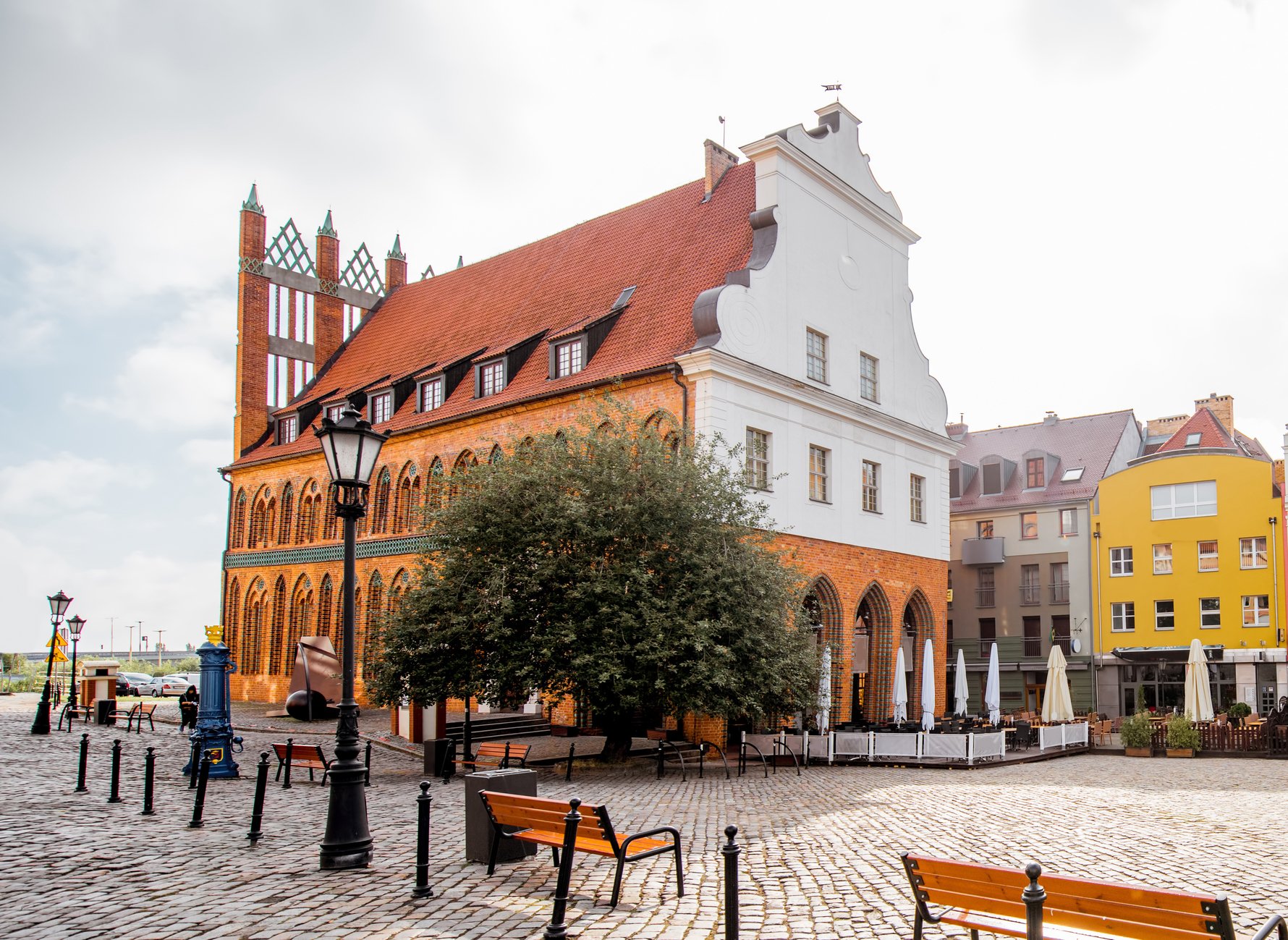
Ducal Castle, Szczecin
Looming above the old town skyline like a big wedding cake, the Ducal Castle (also known as the 'Pomeranian Dukes' Castle' / 'Zamek Książąt Pomorskich') doesn't need to work hard to draw attention to itself. It was completed in 1428 as a seat of power for the Pomeranian Dukes of the House of Griffins. So influential was this dynasty, that the coat of arms of Szczecin is a griffin's head that can be found all over the city! So too can the Griffins' standard be seen all over the castle grounds, including around the impressive mechanical clock on the tower. The castle was also the childhood home of Sophia Augusta, who became Tsarina Catherine the Great of Russia. Aside from the jaw-dropping interior architectures and the range of medieval and renaissance furnishings, there's plenty of Latin catch-phrases to be found on foundation plaques in the various wings: CARPE DIEM (Seize The Day), VITA BREVIS (Life Is Short) etc. On the lower levels, you can also see an open-glass display on the floor level of the 8th-century fortifications that once stood in this castle's place, as well as a 'Witches’ Cell' that actually only ever held one so-called 'witch': Sidonia von Borcke, a Pomeranian noblewoman blamed for the premature death of Griffin Duke Philip II. These days, good use is made of the courtyard, with many cultural and musical events taking place in the warmer months! In February 2021, archaeologists discovered a Nazi-era tunnel network below the castle, however its purpose is yet to be confirmed.
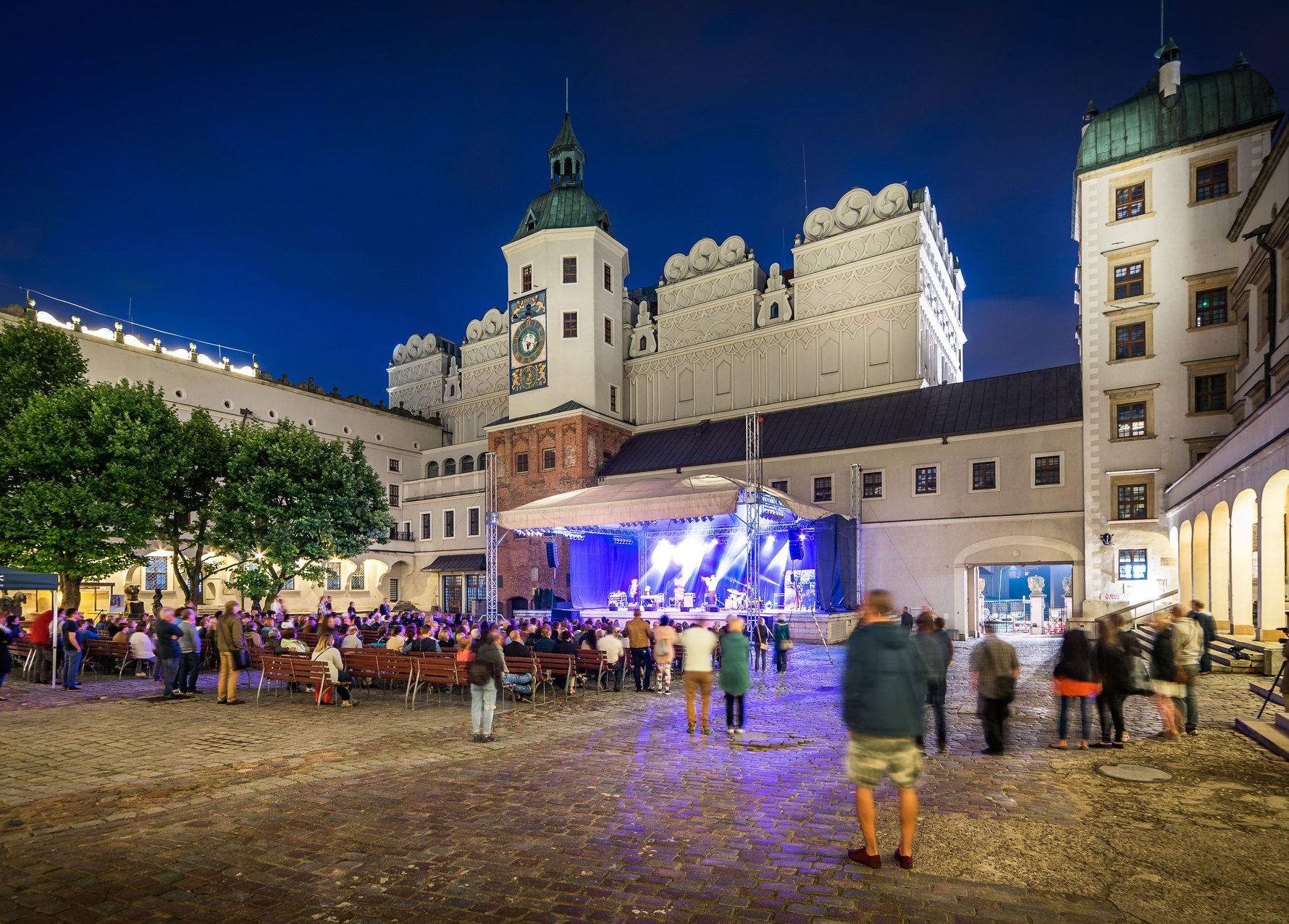
Wały Chrobrego (Hakenterrasse)
Head to Bulwar Piastowski along the riverfront, stroll northwards for about 12 minutes and you will find Wały Chrobrego, an observation terrace of epic Greco-Roman proportions. You can't miss it! It was built in 1902 in place of old riverbank fortification and named Hakenterrasse in honour of Hermann Haken, the mayor of Szczecin at the time. However, since Szczecin became Polish again, Hakkenterasse was renamed in honour of King Bolesław Chrobry (AKA 'the Brave') and so it is now Wały Chrobrego (ENG: Chrobry Embankment). The sculpture down the front is of Hercules fighting a Centaur, created by the famed German artist Ludwig Manzel. Just behind the Wały Chrobrego is a promenade of architecturally-impressive institutions, most notably Contemporary Theatre, the Maritime Academy and Szczecin Voivodeship Office, the latter of which is a municipal museum and provides public access to a WWII bunker!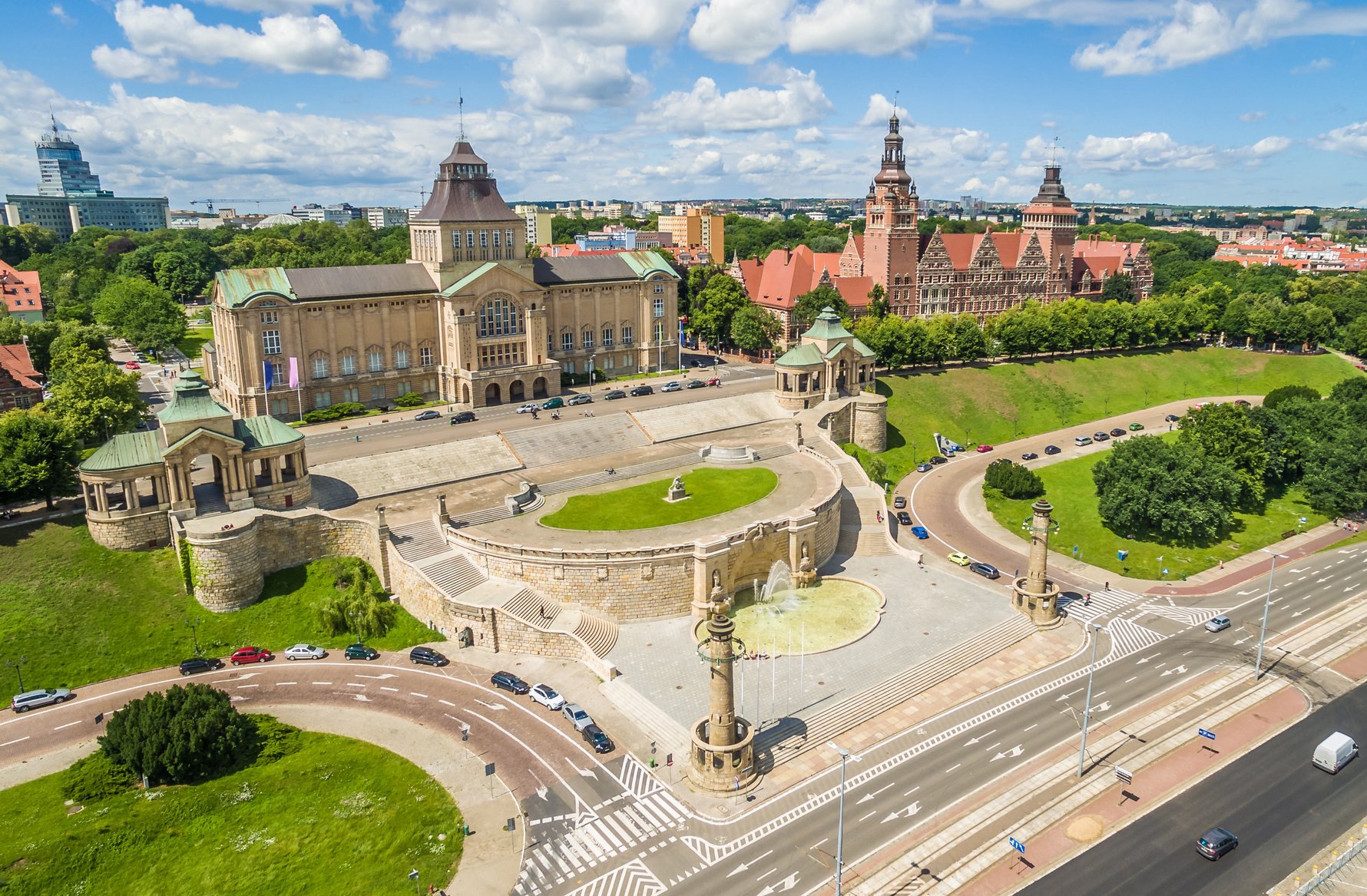
Szczecin's German Bunkers and Underground Trails!
One of the key landmarks (or should we say under-landmarks) that go unnoticed, and for obvious reasons, is Szczecin's warren of German bunkers and subterranean trails that lead all over the city centre. During World War II, Szczecin (then Stettin) was Germany's major port on the Baltic, as well as a major centre of military industry, which made it the target of heavy bombing from Allied forces. Szczecin had 7 air raid shelters in 1941, but by the end of 1944, that number had quickly expanded to 780 with a seemingly endless amount of tunnels between them. Today, there are 3 that can be visited:
• Under the main railway station is the Szczecin - Underground City Trails Museum, which is the biggest-remaining civic bunker in Poland and the most-recommended of the three.• A second bunker is located beneath the Szczecin Voivodeship Office (Urząd Wojewódzki) on Wały Chrobrego Street
• A third, outer-city bunker is located next to Emerald Lake (Jezioro Szmaragdowe), about 12 minutes drive south-west of the centre.
Dialogue Center "Upheavals"
Just to the north of Szczecin Old Town is one of two very modern-looking structures that offers time travel in the other direction. The first is the Dialogue Center "Upheavals", a branch of the National Museum (PL: Muzeum Narodowe) focused on the more recent history of the Szczecin and the West-Pomeranian region. 'Upheavals' is a keyword to describe the city's contributions towards Poland's pursuit of democratic change in the latter-half of the 20th century, specifically, its contributions to the Solidarity movement.
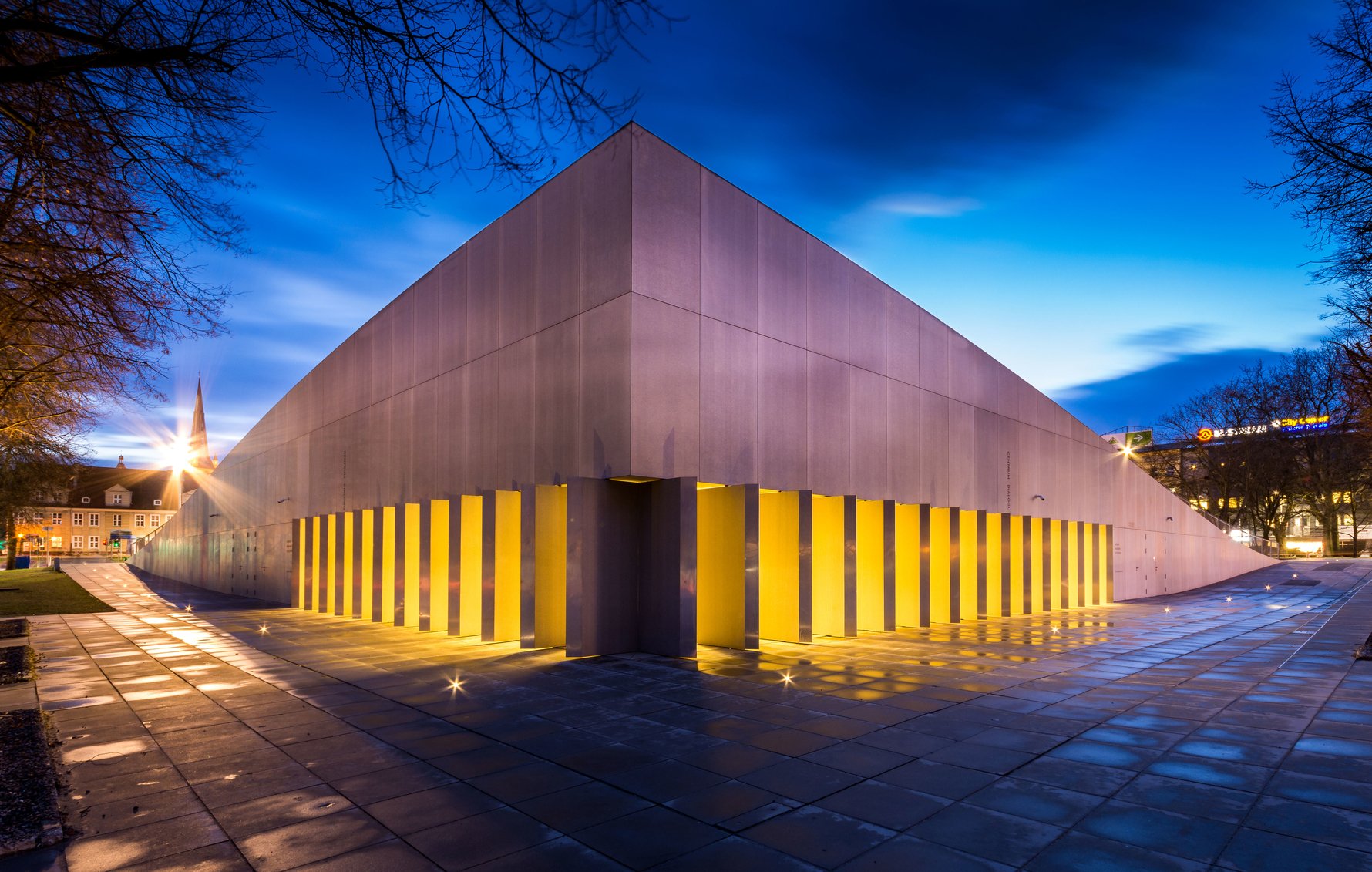
Szczecin Philharmonic Building
Just across the street, the other very modern-looking structure that will draw your attention is the Szczecin Philharmonic Building. If you see it during the day, you will be knocked over by its imposingly stark exterior (a peak inside will leave you with equal monochrome blindness). However, return in the evening, and you will see this milk-carton chorus come to life in an ever-changing colour light display. This, the newer building of the Szczecin Philharmonic Orchestra, was awarded the European Union Prize for Contemporary Architecture, and rightly so! Keep an eye on the Philharmonic's website for details of upcoming performances.
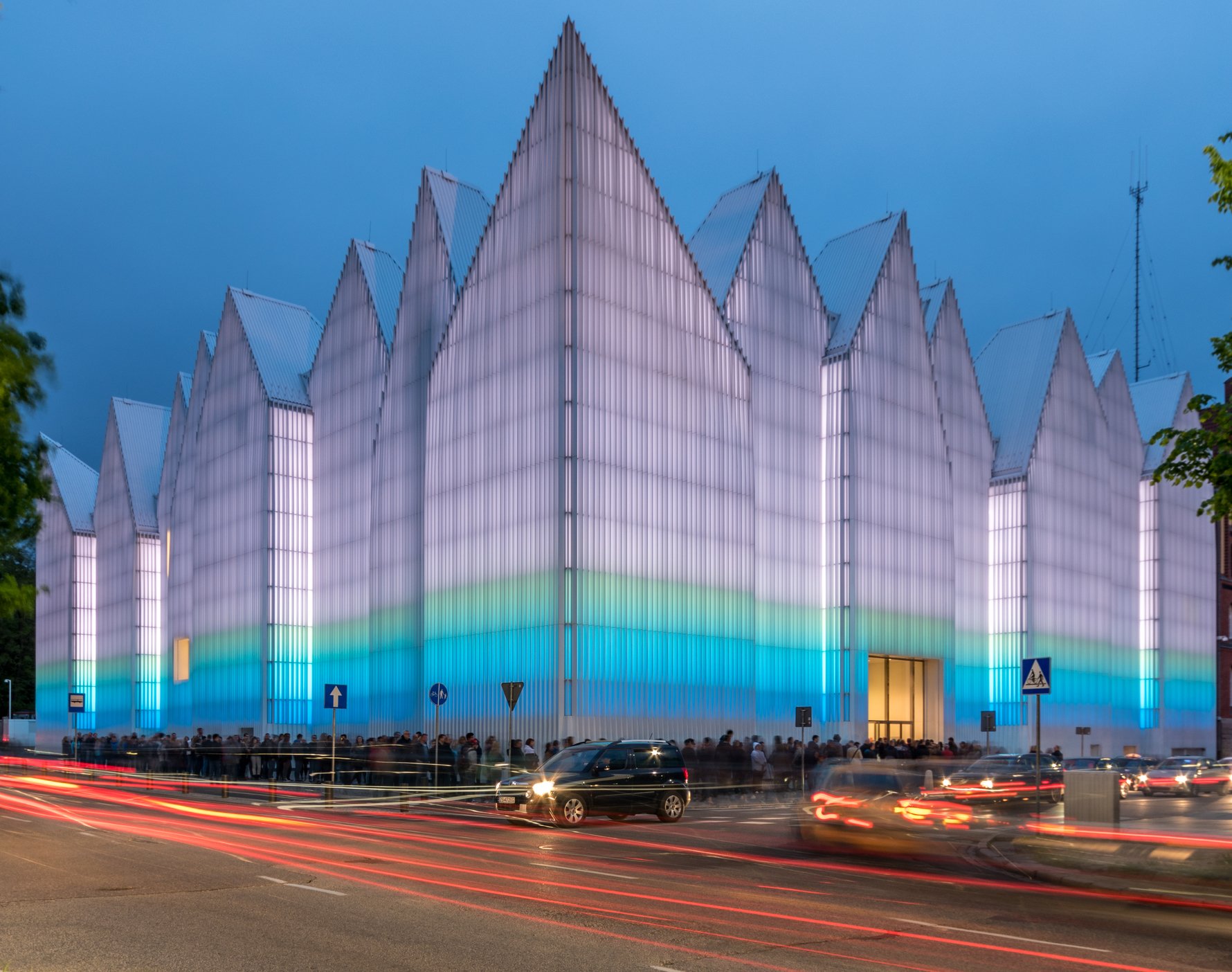
Tram Line #0
If there's one thing we've learnt about Szczecin, it's that they're crazy about trams. In fact, it's kind of essential, considering the fact that the city is so spread out! The network you see in place has been operating since 1879 and, in celebration of its 140+ year old legacy, you have the opportunity to ride on a vintage tram as a weekend sightseeing activity. Tram Line #0 leaves Szczecin Głowny, the main train station, twice a day on Sunday's 14:35 and 15:59 respectfully. There are 19 stops in total, which include the Neo-Renaissance Post Office No. 2, the Royal Gate and 'Pomorzany', the communist-era building estates that perfectly match the little bygone-era carriage you're travelling in!
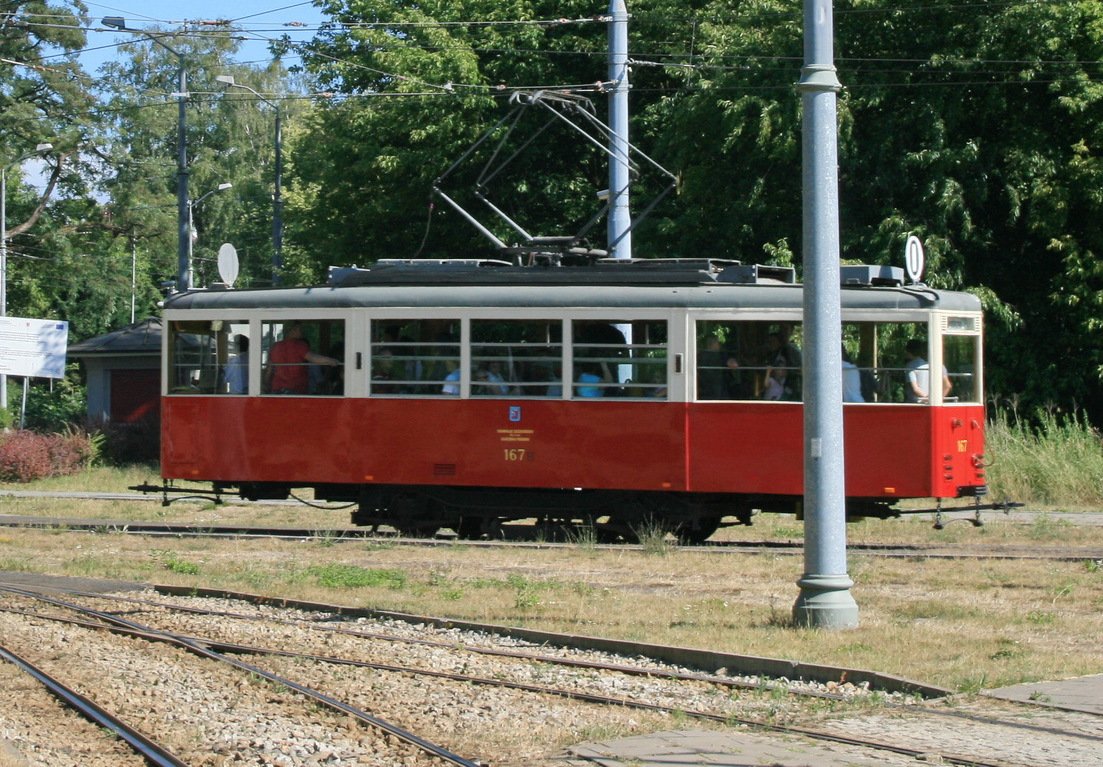
Museum of Technology and Transport
A little further out of the city centre but not without good company. If you're out to stroll around Park Kasprowicza, then consider dropping in at the Museum of Technology and Transport. Residing in an old tram depot, as is evident by the loom of tracks out the front, the vast majority of exhibits at this institution are things with wheels - cars, bicycles, motorcycles, trams, buses, and a couple of other vehicles that look like they should either be on the surface of Mars! Many of these items were produced by the Szczecin-based company, Stoewer, who were active from 1858 until the end of World War II. In addition to this, Stoewer also produced several lines of typewriters, sewing machines and bicycles, many which can be viewed in the museum's smaller half (though arguably better-curated than the transport section!)
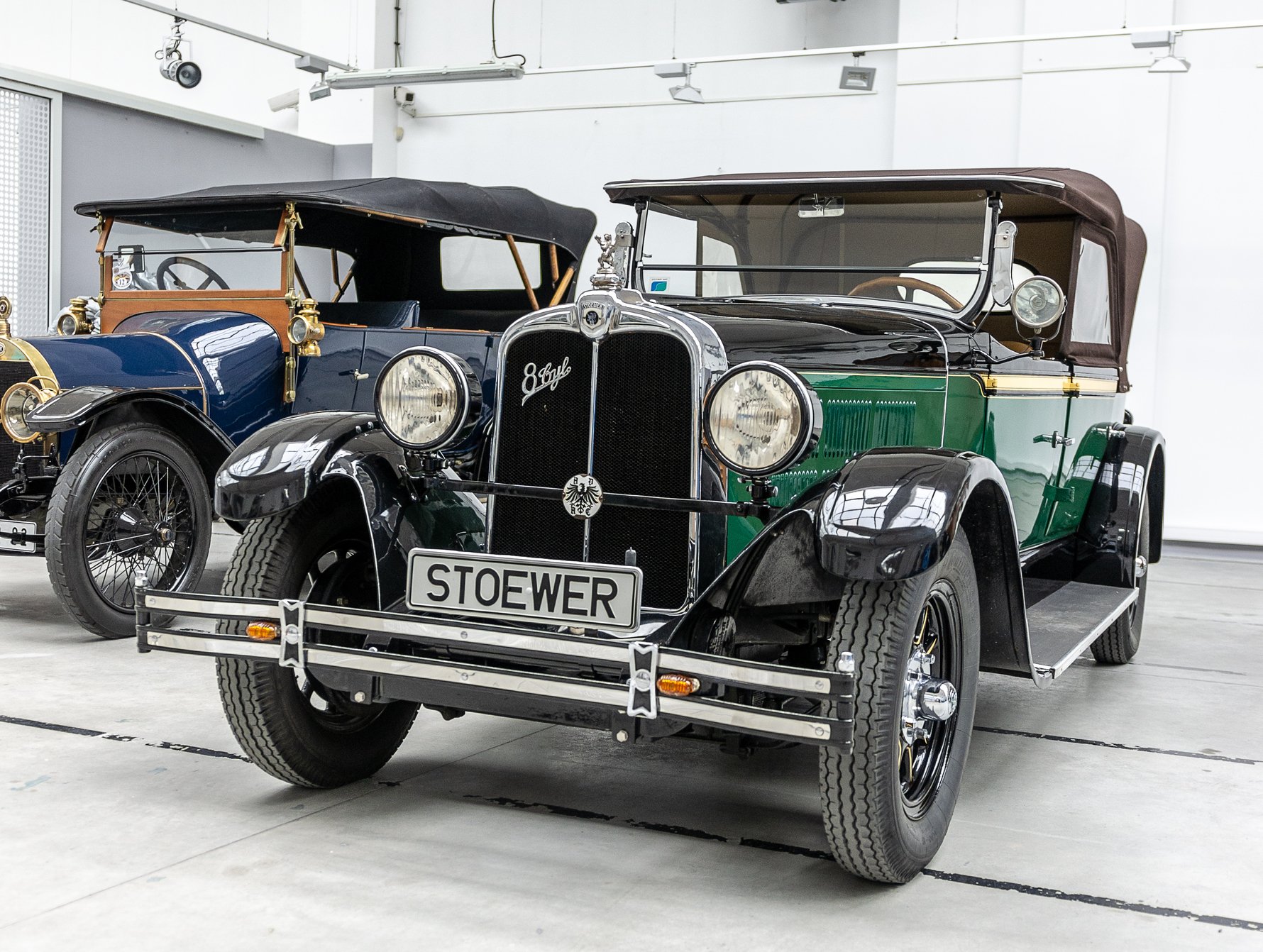


Comments